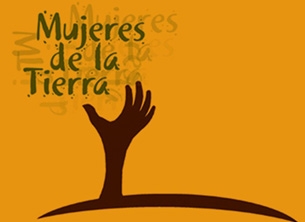 |
| (Mujeresdelatierra.org) |
EL MONTE, Calif. (AP) — Maria Valdez didn’t consider herself an environmentalist when she pressed this city east of Los Angeles to buy land ringed with factories and railroad tracks for a new neighborhood park.
The trash lot is now on its way to becoming an oasis with a butterfly sanctuary and community garden — and Valdez is undergoing a transformation of her own. Next month, she will be sworn in as president of the El Monte chapter of Mujeres de la Tierra, a new environmental group that translates as “Women of the Earth.”
“When you get involved and you know that you could make it happen, it feels good,” said Valdez, a stay-at-home mother of six. “I’m interested in the water, the air — for our kids.”
Spurred by high rates of asthma and lead poisoning among their children, Latino immigrants such as Valdez, a U.S. citizen who left Mexico as a child, are embracing green values like never before — on their own terms.
Latino activists and politicians talk about building a unique green movement that distances itself from mainstream environmental groups, even as those organizations hope to tap into newfound Latino political clout.
Those involved in the nascent movement cite a gap between the priorities of traditional environmentalists, who may focus on saving endangered species and preserving roadless areas, and the practical concerns of many Latino immigrants, who confront thick smog and lead-laced water every day in inner-city neighborhoods. Many also are wary of groups like the Sierra Club, which has debated whether to make U.S. immigration control part of its platform.
“If you ask a Latino, ‘Are you an environmentalist?’ they’ll say ‘No’ because it boxes you in,” said Irma Muñoz, founder of Mujeres de la Tierra. “Environmentalists blame Latinos for all the problems.”
The newly defined movement is strongest in Southern California.
Last month, more than 1,200 Hispanic community leaders, activists and politicians gathered in Los Angeles for the first meeting of its kind in decades. Participants in the National Latino Congreso drafted resolutions on issues ranging from emissions reductions to mercury pollution, hoping Latino voters will use them as a litmus test for candidates in the 2008 presidential campaign.
Assembly Speaker Fabian Núñez (D-Los Angeles) co-sponsored a groundbreaking law that makes California the first state to put a cap on greenhouse gas emissions, including those from industrial plants. He said his interest grew partly out of his concern for the effect that poor air quality has on Latino children.
“For a long time, the image of an environmentalist in California was a stereotypical brie-eating, chardonnay-sipping, Volvo-driving Marin County-ite,” Núñez told the Los Angeles gathering. “But there were other issues that affected people who wouldn’t commonly be known as environmentalists.”
In the heavily Latino cities of Maywood and Bell Gardens, politicians got elected last year by focusing on industrial pollution, lingering Superfund sites and water contamination.
A 2004 study by the Natural Resources Defense Council found that nearly 70 percent of Latinos live in areas that violate federal air-quality standards, and that Hispanic children are twice as likely as non-Hispanic white children to have lead in their blood.
Traditional environmental groups, such as the Earth Day Network and the Sierra Club, helped sponsor the National Latino Congreso and work with activists on local projects.
But, some Latinos say, environmentalism can mean building a park, getting rid of a smoke-belching factory or persuading railroads to run freight trains less often — not protecting an endangered species hundreds of miles from their homes.
“We’re not the tree huggers,” said Laura Rodriguez, a spokeswoman for the Mexican American Legal Defense and Education Fund. “We have to deal with high numbers of asthma patients and Superfund sites and how it affects communities.”
Page created on 8/7/2014 3:06:03 PM
Last edited 1/5/2017 9:41:07 PM
